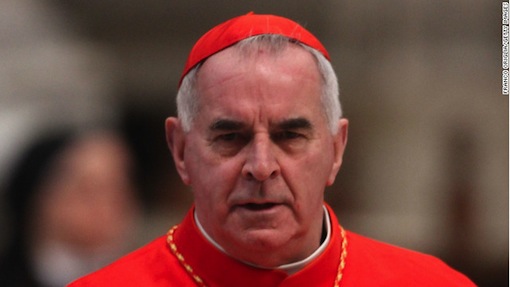The resignation of Cardinal O’Brien as Archbishop of St Andrews and Edinburgh, within a month of the date on which his formal resignation would normally have taken effect, is both shocking and sad, for he was a well-known and well-liked figure within the Catholic Church in Scotland, in Britain, and more widely; and within Scotland he had good relations with other churches and faiths, and with civil and political society.
Given the nature of the accusations, however, and the publication of them over the weekend, ahead of the formal abdication of Pope Benedict later in the week, it is unsurprising that he has taken the decision to resign. The Scottish Catholic Church has a good reputation in Rome for clear and confident leadership, and the Pope particularly relished the Scottish part of his visit to the UK, and appreciated the work done by Cardinal O’Brien and his fellow bishops.
With that in mind, however, the Cardinal could not but be mindful of the problems that would follow given the inevitable press interest created by the accusations, and he would not want that burden to fall upon the Church and the Pope at what is obviously a critical moment in the life of the Roman Catholic community.
Additionally he continues to suffer ill-health and had long ago indicated to Rome that he wished to be relieved of his responsibilities as soon as possible following the formal submission of his resignation. He could not then have expected either the Pope’s own resignation and ensuing conclave, and certainly not the submission of these accusations. In the event he has ended his tenure as Archbishop of St Andrews and Edinburgh as he served the office, in the interests of the Church.
You have a decision to make: double or nothing.
For this week only, a generous supporter has offered to fully match all new and increased donations to First Things up to $60,000.
In other words, your gift of $50 unlocks $100 for First Things, your gift of $100 unlocks $200, and so on, up to a total of $120,000. But if you don’t give, nothing.
So what will it be, dear reader: double, or nothing?
Make your year-end gift go twice as far for First Things by giving now.



